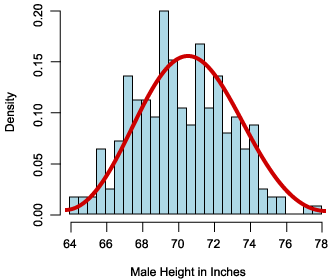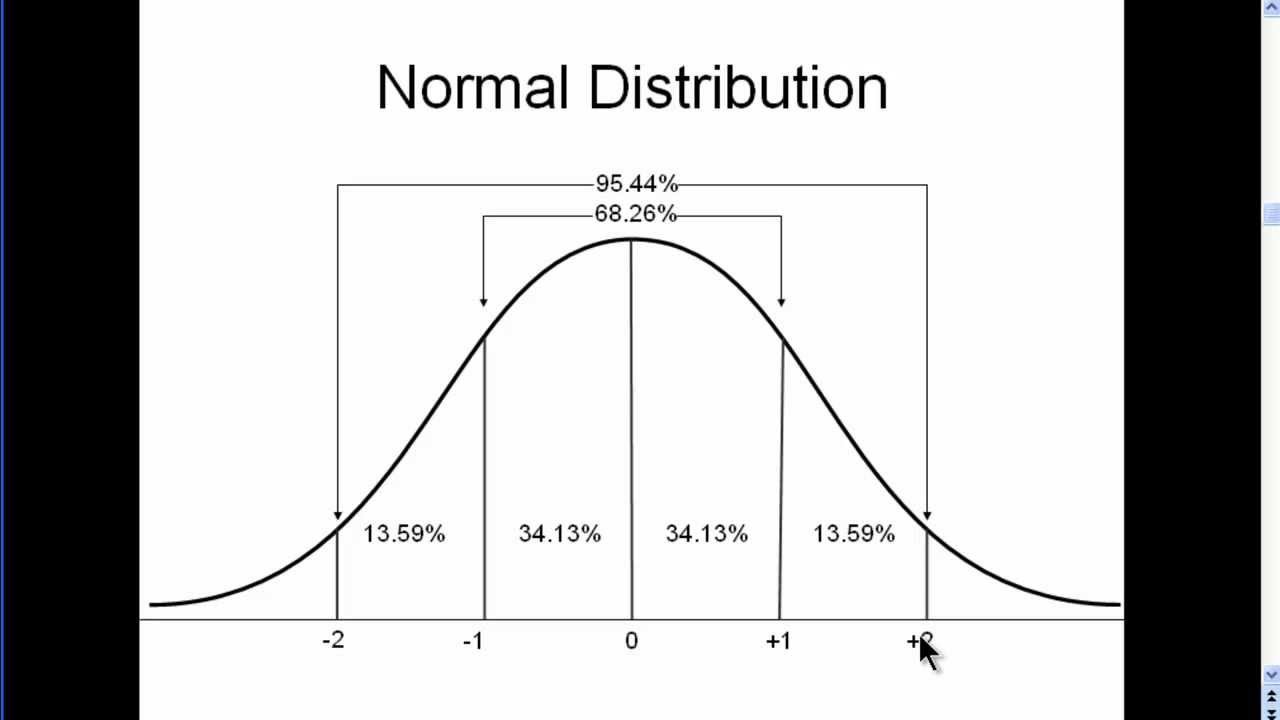"To put it another way, what are the odds of an event happening, if you take trillions of chances, and average the outcomes of those events?"
"The macro world is just the average outcome of trillions of quantum level events-- and it has the appearance of cause-and-effect, if you look at it that way"
This is essentially a probability distribution.
Like this picture here:
This is a more infomative picutre of a nomoral distubtion:
Now the mean is at 0, that is your average you are talking about. The 1, 2, -1, -2 are your standard derivations, or your variance about the mean.
For example if we say the true average height of males is 5 feet and 8 inches tall then that becomes your 0 on that bell curve. Then by the empirical rule (
Empirical Rule: What is it? ) 99.7% of all men are going to be within 3 standard deviations of that height.
Now to take your example say we examine a trillion men; the most dominate result is going to be males of 5 feet 8 inches. Variation defiantly occurred, but if we lined up all the groups like our bell curve, after a trillion times the 5 feet 8 inches group is going to be so large it will overshadow the others. Then the next largest groups are going to be the ones that are very close to 5 feet 8 inches, so much that we won't be able to tell the difference by just eyeballing them. So you are going to get dependable empirical results after a trillion times, and any group that is not within the 99.7% is going to be so small that in comparison they might as well be zero.
I don't know if male height is the best example but if I am understanding you right this is basically what you are talking about, which is not a point I disagree on. I actually found your post very interesting. But my disagreement is on the part that this means cause and effect is an illusion. If anything this helps proves cause and effect, and it shows why it is a reliable predictor of reality.
I think you are right for the most part, I just don't think you are complete on why we can depend on cause and effect.


